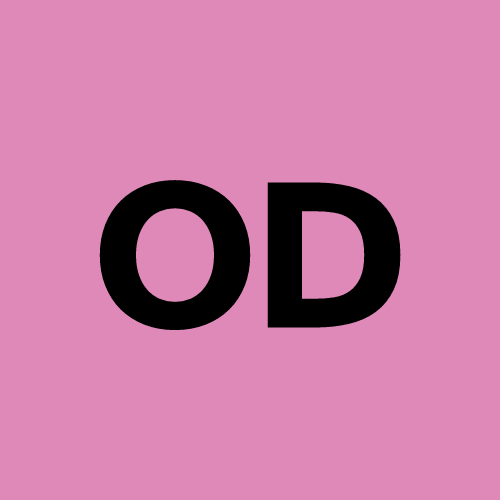Top Frameworks for Android Mobile App Development
 Olivia Davis
Olivia Davis
Both the Android platform and available technologies to developers continue to evolve rapidly. Choosing the right framework could be the difference between an app that performs well and scales and an app that does not. With so many to choose from, businesses often opt to hire a reputable Android app development firm to help them decide which to use for their project.
This blog post will discuss the cutting-edge Android development frameworks that will be popular in 2025, their significance, and how they meet various business requirements.
Why Frameworks Matter in Android Development
Frameworks provide reusable parts, libraries, and organized procedures to expedite code while maintaining dependability, making them the cornerstone of app development. Businesses may cut expenses, save time, and produce a high-quality product more quickly with the correct foundation.
Understanding these frameworks can assist you in evaluating developer skills and ensuring they suit your project requirements if you're attempting to hire an Android app developer.
Jetpack Compose – The Android-First Option
Jetpack Compose quickly gained popularity as Google's first-choice UI toolkit for native Android. Compose offers a declarative model for building user interfaces (UIs), which accelerates and enhances development compared to the prior XML-based layouts.
Best for: Android-only applications where consistency in the user interface and performance matter.
Advantages: Eliminates boilerplate code, offers tight coupling with Android Studio, the most popular Android IDE, and is backed by Google.
- Why it's well-liked: a native-first approach that's simpler to maintain and more scalable.
Kotlin Multiplatform Mobile (KMM) – Code Sharing Power
Suitable for those companies that want iOS and Android apps but prefer to use native user interface components, Kotlin Multiplatform Mobile is a suitable option. While building native user interfaces for both the systems, business logic can be shared across platforms.
Ideal for: Applications that need to have a single codebase for business logic but keep the native user interface.
Strengths: Strong ecosystem, Google and JetBrains support, growing usage in enterprise and finance applications.
Pro tip: To reduce duplication without losing native speed, KMM is utilized by most leading Android app development firms.
Flutter – Cross-Platform at Speed
One of the most popular platforms for developing iOS and Android apps from a shared codebase is Flutter, developed by Google. With its widget-based platform and Dart, Flutter offers native-like performance and beautiful user interfaces.
Best suited for: Startups or companies need to quickly deploy on multiple platforms.
Strengths: large community backing, hot reload, and rich widget set.
Use cases range from scalable B2C apps, media apps, and e-commerce.
React Native – Supported by Meta
Developers who want to build apps with JavaScript/TypeScript still prefer React Native. React Native offers cross-platform projects flexibility and robust support due to its rich ecosystem of Android app libraries.
Best suited for: Enterprises with talented web development teams familiar with React.
Strengths: Cost-effectiveness, huge development community, and mature ecosystem.
Limitation: At times, performance falls behind native frameworks and Flutter.
.NET MAUI – Microsoft's Replacement for Xamarin
Microsoft cross-platform framework,.NET MAUI (Multi-platform App UI), replaces Xamarin. It allows C# developers to share a single codebase and target Windows, macOS, iOS, and Android.
Best suited for: Companies who have invested in Microsoft products in the past.
Strengths: Strong corporate support, tight Visual Studio integration, and a unified project structure.
Why think about it: Long-term stability is offered by this framework if your company already uses.NET.
Ionic + Capacitor – The Hybrid Solution
By partnering with Capacitor to deliver native features, Ionic has gone beyond its niche label of a web-only solution. It allows developers to build mobile apps that can tap native APIs using familiar web technologies (HTML, CSS, and JavaScript).
Best for: MVPs or lightweight apps where time to market is more critical than great performance.
Strengths: Low initial price, brief learning curve for web developers, and huge plugin community.
Weakness: Not appropriate for complex applications such as advanced AR/VR or games.
NativeScript – Versatile but Specialty
NativeScript allows web developers to use TypeScript or JavaScript to develop native applications. It has found a niche with teams who prefer direct access to native APIs using JavaScript without being as popular as Flutter or React Native.
Best for: JavaScript teams who value native API access.
Advantages: Simple, wrapper-less access to native device APIs.
The community is smaller than React Native or Flutter's and is a drawback.
How to Select the Best Framework
The following influences what framework is ideal for your project:
Timeline and budget: For rapid releases, Flutter or React Native is ideal.
Performance requirements: KMM and Jetpack Compose are suitable for apps intended for Android.
Alignment of ecosystems -.NET MAUI suits best for companies that prioritize Microsoft.
Teamwork: Ionic can be faster if your team already has an understanding of web technology.
That is why business often turns to a veteran Android app development firm that has the ability to evaluate requirements, recommend frameworks, and design scalable solutions.
Final Thoughts
With the abundance of modern-day Android programming frameworks at hand, companies have more choices than ever. There is a framework for you that can assist you in meeting your goals, if they're cross-platform reach, blazing native speed, or rapid MVP development.
The proper thing to do while creating a new app or renovating an existing one is to get the services of an Android app developer who knows about frameworks and is proficient with using the latest Android app libraries and tools in Android Studio. Such expertise ensures that your code is optimized for performance and future-ready.
Subscribe to my newsletter
Read articles from Olivia Davis directly inside your inbox. Subscribe to the newsletter, and don't miss out.
Written by
